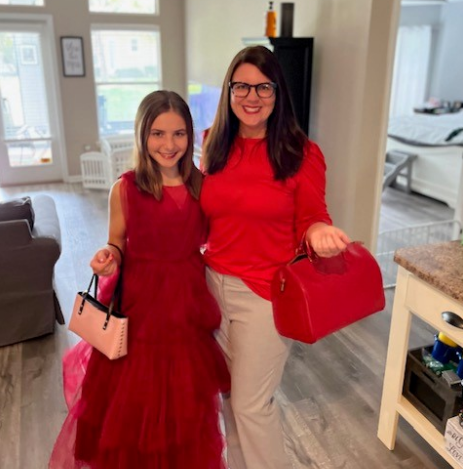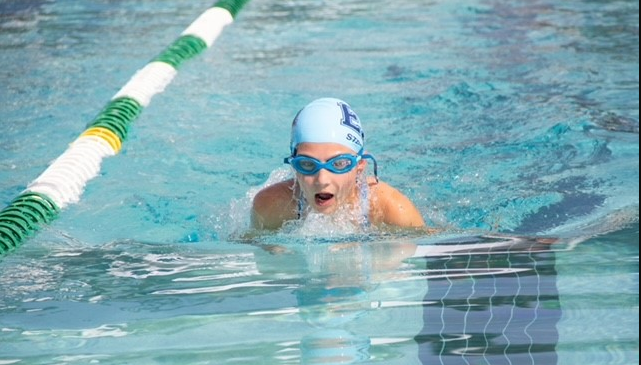Kate Streets wants to be Jane Goodall when she grows up.
“I have always wanted to work with animals that you can actually touch and play with and have a variety of interactions with,” said Kate, a homeschooled 13-year-old from Fleming Island who receives the Family Empowerment Scholarship for students with Unique Abilities.
Kate said Goodall, the legendary primatologist known for her long-term studies of chimpanzees in Tanzania, has served as a role model, and her work has inspired her dreams of someday moving to Australia and working for a zoo.
“They have a good variety (of chimpanzees) there,” she said. “It’s really fascinating how their brains work like ours. They can use tools; they use a stick to put into an anthill to get their ants. I like learning how they think, play with each other, and have their social groups.”
To prepare for her ideal career, Kate goes to Jacksonville Zoo and Gardens, which has a variety of programs for students. In addition to summer zoo camp, she attended Homeschool Zoocademy, a program for homeschool students ages 5 through 12. The program operates during the school year, with students attending three-hour sessions each month to examine fossils, observe behind the scenes and hear from professionals who work with the animals.
Florida lawmakers passed the Family Empowerment for students with Unique Abilities program in 2014. Formerly known as the Gardiner Scholarship, it provides an education savings account that functions like a restricted-use bank account from which parents direct funds to pay for private school tuition and fees, approved homeschooling expenses, therapies, tutoring and other education-related expenses. Step Up For Students, which hosts this blog, is an administrator of the program and recently published a purchasing guide for families.
Because the zoo is a state-approved vendor, Kate’s mom, Danyse, can use funds from her account to pay the fees, which run about $200 per year. It’s one of several ways Streets uses her daughter’s scholarship to customize learning for Kate, who has dyslexia, dyscalculia and dysgraphia. Students with these conditions have difficulties in reading, math and writing.

Streets said she suspected something was different about Kate as early as pre-kindergarten because she lagged her classmates in learning letter names and sounds. Suspecting a maturity issue, Streets had Kate repeat pre-kindergarten, a practice often called “academic redshirting,” which allows students more time to develop skills. When that approach failed and with kindergarten set to begin, administrators at the private school Kate attended told Streets that her daughter would have to leave the school next year if she couldn’t learn to a certain level.
Streets enrolled her at another private school. When the coronavirus pandemic hit in 2020, she chose homeschooling. A small-group tutor also helped Kate make strides in core academic subjects. She attends three days a week with six other girls in grades four through eight, all of whom have learning differences.
“They get along well and help each other,” Streets said.
Streets paid for all Kate’s schooling out of pocket until 2021, when lawmakers expanded eligibility for unique abilities education savings accounts to include students with dyslexia. Streets signed up.
Since then, she has found more creative ways to design the best learning plan for Kate. Though the bulk of her account pays for the private tutor, the remainder pays for zoo school and Kate’s monthly dues and tournament fees for a private school swim team, which serves as physical education.
Recently, Streets used about $60 of Kate’s account to pay for a month of crocheting lessons at a local arts studio. Though the lessons allowed her to learn an art, Kate quickly turned it into a business opportunity by selling purses she learned to make in class.
“It’s a nice little side hustle for someone who wants a lot of things and doesn’t have any money,” Streets said.
Kate used the proceeds from the bag sales to buy a sewing machine. Her mother will use about $200 from her ESA to pay for sewing lessons.
“She’s excited about being able to make her own clothes,” Streets said.
Kate’s education is unconventional, but increasingly, it’s not unusual. Research shows that family spending patterns change the longer they use flexible education scholarships. As families become more familiar with the program, they begin to spend more money on expenses other than school tuition and fees, representing a desire to further customize their child’s education. Such changes can help create a virtuous cycle by encouraging more mold-breaking providers to offer services, which attracts more families to the program.
Streets, a former assistant principal who left her district school to start a tutoring and special education advocacy company called Bridging the Reading Gap, says the flexibility the ESA provides has helped Kate thrive academically, socially and athletically. She dropped 16 seconds off her previous finishing time in the 100-meter breaststroke at a recent swim meet.

“We’ve tried to stretch the funds as much as possible,” Streets said. “I think we’ve used the money wisely.”
Kate says she wants to learn sign language as soon as possible so she can use it to communicate with the chimpanzees she hopes to make a career out of studying someday.
“In the future, our scientists are going to learn much more about these animals, and when I get older, there will be so much more potentially we can learn about them.”
For now, though, she’ll settle for being a summer camp counselor and conservationist with Jacksonville Zoo and Gardens ZooTeens! Program.